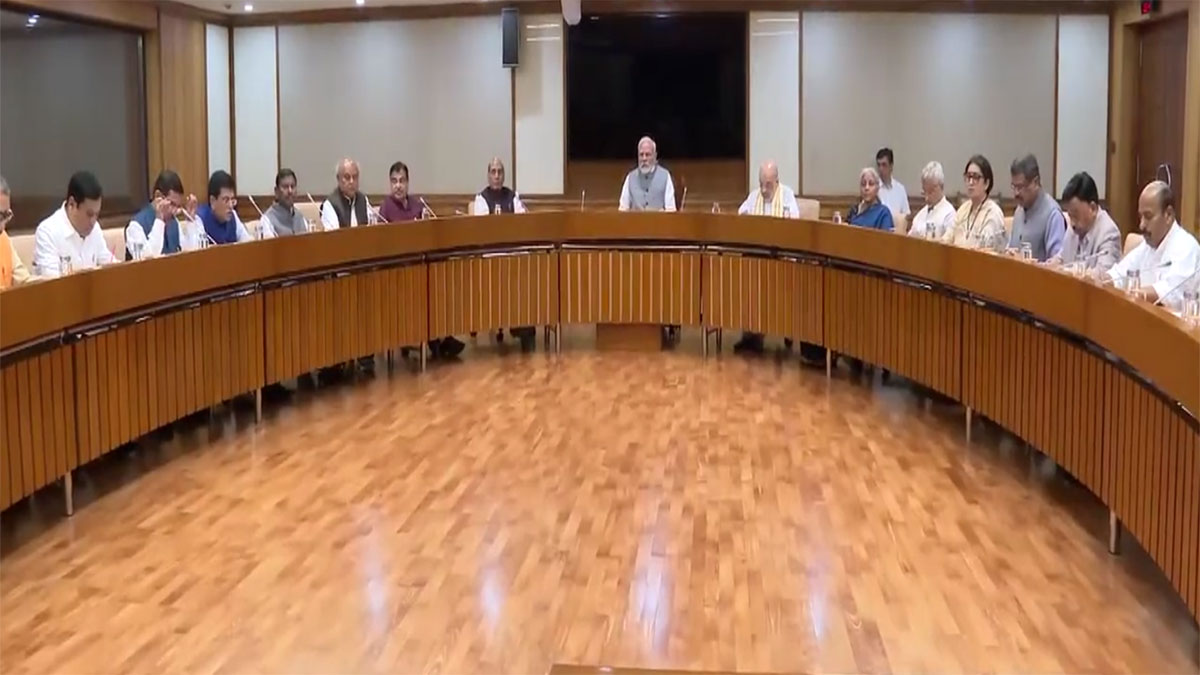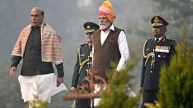The Prime Minister Narendra Modi Cabinet on Monday approved the women reservation bill, according to sources.
As per sources, “Preparations are in full swing within the Bharatiya Janata Party (BJP) and the government for the Women’s Reservation Bill, which is scheduled to be presented on Wednesday. The bill, if passed, will have far-reaching implications, and thousands of women from areas surrounding Delhi may come to the city.”
“In light of this, Members of Parliament (MPs) met at BJP Chief J.P. Nadda’s residence today. These MPs hail from districts in the National Capital Region (NCR) and neighboring areas. It is understood that they have been tasked with mobilizing women from nearby parliamentary constituencies,” they said.
Read More: IND Vs AUS: KL India Squad Announced! Rahul To Lead Team India; Rohit, Virat Rested
“The BJP is considering organizing a significant gathering of women either in Delhi or in a city in Rajasthan that is adjacent to Delhi. This gathering could take place on Wednesday or a day shortly thereafter. The highlight of the event may be an address by Prime Minister Narendra Modi himself,” they stated.
“The Women’s Reservation Bill is a significant piece of legislation aimed at promoting gender equality and women’s participation in politics. The preparations suggest that the BJP and the government are keen to showcase their commitment to empowering women and advancing the cause of women’s rights through this bill,” they added.
Women’s Reservation Bill: Significance And History
The Women’s Reservation Bill, which has been pending for nearly 27 years, is gaining momentum as several parties push for its introduction and passage in the Indian Parliament. As of now, women’s representation in Indian legislatures remains significantly below their share of the population. Here are key developments and challenges related to the bill:
Historical Background: The Women’s Reservation Bill was first introduced in 1996 and has faced multiple roadblocks over the years.
Current Representation: Women MPs account for less than 15 percent of the Lok Sabha’s strength, and women’s representation in many state assemblies is below 10 percent.
Last Concrete Development: In 2010, the Rajya Sabha passed the bill, reserving 33 percent of seats for women in the Lok Sabha and state assemblies. However, it lapsed as it couldn’t be passed by the Lok Sabha.
Political Support: While the BJP and Congress have consistently supported the bill, opposition from other parties and demands for sub-quotas within the women’s quota have been stumbling blocks.
Recent Push: Several parties, including the BJD and the BSP, have recently demanded the revival of the bill, and the Congress passed a resolution supporting it.
2008 Bill: The 2008 Bill proposed reserving one-third of all seats in the Lok Sabha and legislative assemblies in each state for women. It also suggested sub-reservation for SCs, STs, and Anglo-Indians.
Reservation Period: The reservation was to be operational for 15 years, with seats to be rotated after each general election.
Chequered History: Similar bills were introduced in 1996, 1998, and 1999. A Joint Parliamentary Committee made recommendations, some of which were included in the 2008 Bill.
Standing Committee: The 2008 Bill was referred to the Standing Committee on Law and Justice, which failed to reach a consensus.
Current Challenges: Implementing reservations in the Rajya Sabha faces hurdles due to the existing system of elections to the upper house, which does not accommodate seat reservations.
Constitutional Amendment: Any attempt to introduce reservations in the Rajya Sabha would require amending the Constitution.
Need for Broad Support: The bill needs two-thirds support in each House of Parliament for consideration and passage.
The ongoing push for the Women’s Reservation Bill reflects a broader commitment to increasing women’s representation in Indian politics and addressing gender disparities in decision-making bodies. However, challenges related to reservations in the Rajya Sabha and the issue of sub-quotas within the women’s quota remain complex and need careful consideration.










